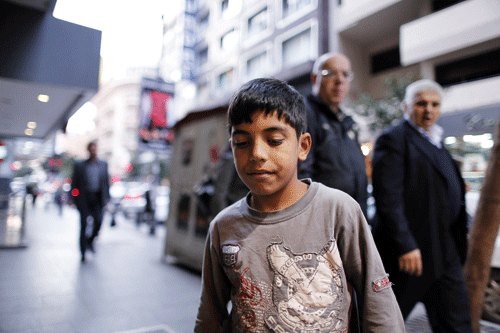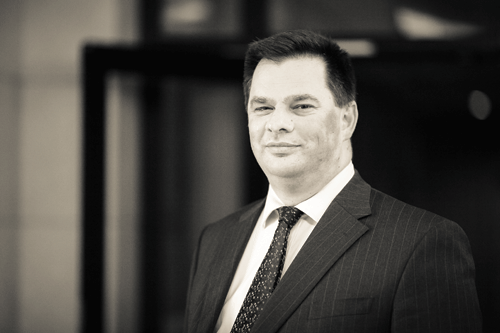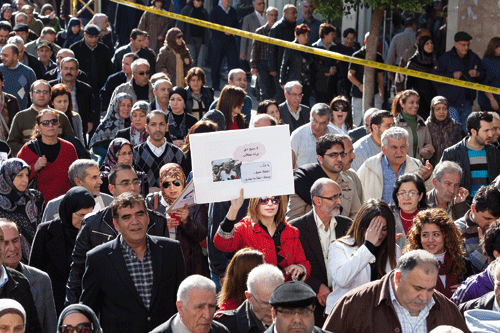Say you are an entrepreneur and you need a space to work, but want to avoid hassles such as finding a usable Internet provider, ensuring uninterrupted electricity, and the like, while you also want a place to share thoughts and insight with other entrepreneurs — where should you go? Well, the options have been growing recently, and Executive investigates a few of the spaces on the menu.
I’m on Cloud 5
The most recent addition comes from the abundant stock of vacant space held by Solidere, Lebanon’s mammoth real estate developer. Right smack in the middle of downtown, close to Star Square, Solidere is offering a 500 square meters (sqm) space, dubbed Cloud 5 — as it is located on the fifth floor — which is intended to fit up to 60 entrepreneurs from the Information, Communication and Technology (ICT) sector. At a rental cost of $300 a month, an entrepreneur renting in Cloud 5 gets access to 24/7 security — it is Solidere after all — and to unlimited fiber optic Internet.
“The whole of Solidere is wired with redundancies so if something happens to one wire, it switches to another,” says Richard Azoury, director of business development at Solidere. This attractive value proposition has lured a number of entrepreneurs jumping on board. Wamda, a platform for entrepreneurs in the Middle East and North Africa region, is moving its offices to Cloud 5 this month by renting space for up to nine people. Vinelab, a digital entertainment startup, has hired space for five entrepreneurs and aims to add another seven within six months. The third startup on board is Procomix, a Lebanese startup that assists businesses in their Information Technology decisions.
Cloud 5’s aim is to become the venue not just for Lebanese entrepreneurs but for regional ones too. Management is currently in talks with Amman-based business accelerator Oasis500 and Cairo-based accelerator Flat6Labs to have their startups take up space in Beirut’s downtown. Cloud 5 is not positioning itself to compete with the accelerators and incubators, but rather aims to build on their efforts and provide their graduated startups with a location to work out of efficiently. “Whatever [Beirut-based accelerator] Seeqnce needs to be here, we will help them get and whatever Oasis500 needs, we will help them get,” adds Azoury. “We want them to bring their startups here. That’s the ultimate plan. They are the ones who are in this business, we are in the real estate business.”
He says that eventually Cloud 5 plans to extend its services and provide, by the middle of 2013, an auditorium for everything from ‘boot camps’ to investor days, located on the 300 sqm fourth floor, as well as a public café for entrepreneurs to mingle and share thoughts and ideas.
AltCity
A café, boot camps, investor days, big spaces, mingling and sharing ideas — these things are all on AltCity’s agenda too. Having set up shop in Hamra in the summer of 2011, AltCity was closed for renovation for several months before it started hosting activities and making noise in the entrepreneurial world last year.
With a 600 sqm space with an industrial feel, it currently has capacity for just 11 entrepreneurs — and was at full capacity as last year ended — but once work on the space is completed, slated to be in a couple of months, it could host up to 50 entrepreneurs. The center targets different sectors whereas its neighbor accelerator Seeqnce, located a few blocks away, focuses specifically on mobile and web sectors.
-WOrking-Space-Gadgetg.jpg)
For $250 per month, an entrepreneur can rent a desk, get access to unlimited Internet — albeit not fiber optic — and other perks, such as discounts to AltCity events, which include weekly brunches, workshops and less formal fish and chips pub quizzes.
AltCity is not relying solely on rental fees for revenues, with several events organized last year, many more on its agenda for the upcoming year and a café to be launched this month. “We are thinking of an energetic, viable and engaging space for when things are good, and for when they are difficult in Lebanon,” says David Nabti, the “mayor” of AltCity, also known as its ‘chief entrepreneur and organizer’.
Increasing revenues has moved up on their priority list after an attempt to raise $25,000 through crowd funding failed and a Kafalat-guaranteed loan was put on hold by the banks, following the bombing in Ashrafieh in October 2012. It was a loan of a “modest amount”, says Nabti, but banks were reluctant as they put on hold all funding related to restaurants and cafes. “We tried to explain [that the café] is just part of our revenue stream but they are hesitant; the concept is new to Lebanon.” With banks still hesitant, Beirut-based private equity firm Middle East Venture Partners (MEVP) is supporting the space and has put in “some funds” says Nabti. While the relationship is still informal for now, MEVP “might invest [in AltCity startups] a few years down the road,” adds Nabti.
Nabti does not consider that the space is in competition with Seeqnce or any other entrepreneurial space. “We want to engage Seeqnce and Berytech in doing stuff here; one of our core beliefs is around ‘coopetition’ [cooperative competition],” he says. “We need three Seeqnces, three AltCities, three MEVPs, three Berytech funds… we need more of this stuff.”
Beirut Digital District
Also available to entrepreneurs is the Beirut Digital District, an ambitious project located in Bachoura near Martyr Square, which was launched in September 2012 with entrepreneurs expected to start moving into the fiber-optic wired and 4G-enabled district this month. “What could we do to create jobs in Lebanon? That’s how the idea to launch the district started,” says Karim Kobeissi, a lawyer, adviser to the Minister of Telecommunications and a leading figure behind the project.
The Ministry of Telecommunications, the Lebanese incubator Berytech and property developer Zein Real Estate (ZRE) run the project jointly. The ministry — which will not be deploying “a single penny” according to Kobeissi — is guaranteeing the fiber optic infrastructure and promoting the district. ZRE has been mandated by the ministry to develop the area, made up of several land plots and totaling around 15,000 sqms. “We have an understanding with ZRE that it will build by December 2016 around 40,000 to 45,000 sqms of built up area,” says Kobeissi. At an expected cost of $800 to $1,000 per sqm, Kobeissi expects that the project will cost ZRE a maximum of $40 million and that it will host around 4,000 workers by 2016.
So far, two buildings have been built. One, of 2,200 sqms, will be hosting, as of January 2013, two Lebanese companies: The telecommunications operator Touch, and a web and graphic design firm Cleartag, as well as two major Chinese telecommunication corporations, Huawei and ZTE. “It is the role of the Ministry of Telecommunications to attract these companies to come,” adds Kobeissi.Another building of 2,500 sqms is entirely rented out under a 10-year contract to Berytech, which will be moving in this month. Berytech has committed to eventually rent 10,000 sqms in the BDD.
At a rental cost of $200 per sqm per year, a total of 10 sqms would cost just under $170 per month, cheaper than both AltCity and Cloud 5’s rental fee per entrepreneur. Focused on the ICT sectors, Berytech and ZRE will be deciding jointly which startups can work out of the space, which will eventually include additional facilities such as coffee shops, conferences and gardens.
More choices for entrepreneurs
The basket of options of where to work out of is getting wider and more varied for startups and entrepreneurs in Lebanon; a welcome and healthy competition for startups. What these spaces have in common is that they are all looking to cover entrepreneurs’ basic needs and alleviate some of the core challenges of startups, allowing them to focus on their product and service.
As Nabti points out: “Every minute or hour spent on worrying about decent electricity or the Internet, on registering your business or stuck in traffic is an hour not spent on developing your product and is lowering your competitiveness.”


![Thursday[11]](https://www.executive-magazine.com/wp-content/uploads/2014/01/Thursday11.jpg)


![Georges-Sassine-5×7-2[1]](https://www.executive-magazine.com/wp-content/uploads/2014/01/Georges-Sassine-5x7-21.gif)













